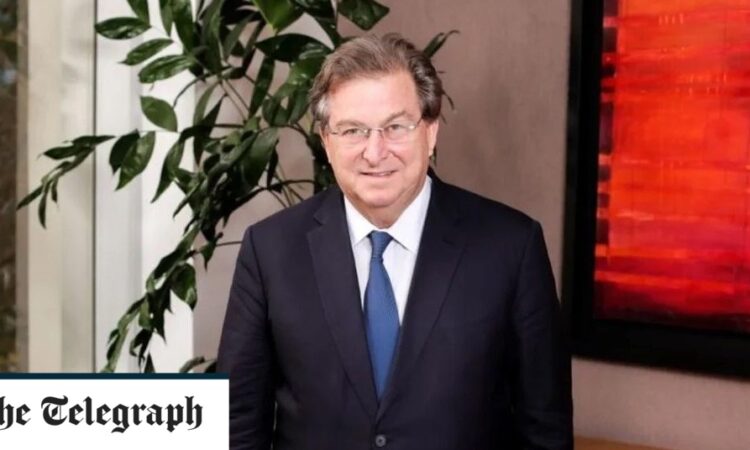
To date, he has left his daughter to play an active role in Metro on the family’s behalf. Dorita Gilinski, an Oxford graduate who also holds an MBA from Harvard, was appointed to Metro’s board as a non-executive director last year.
So why is Gilinski stepping in now to act as Metro’s white knight? One City analyst says: “To make money, as simple as that.”
He adds: “I guess he’ll look to exit when he’s happy with the return on his investment or he decides that a return can’t be achieved.”
On Sunday night, the billionaire pointed to his support of Metro’s branch-based model at a time when rivals are closing thousands of branches.
He said: “The opportunity to become the bank’s major shareholder is driven by my belief in the need for physical and digital banking underpinned by a focus on exceptional customer service.
“I believe that the package announced today [Sunday] enables the bank to pursue growth and build on the foundational work undertaken over the past three years.”
Although Gilinski, who is worth an estimated $5.3bn according to Forbes, resides in London with his family, he has previously been largely unknown in the UK. So, could regulators be concerned about one man taking control of a British bank with nearly three million customers?
City figures do not think it will present a problem. The analyst says: “I would have thought the refinancing deal would have been discussed with the regulator before they went public so I assume the regulator must have already done its due diligence and is comfortable with him.”
Despite the frantic scramble to rescue Metro over the weekend, Gilinski does not appear to be someone who makes rash decisions. After selling his stake in the former BCCI, Gilinski and his family acquired Banco de Colombia in 1994 for $365m, in what was then the largest privatisation in the state’s history.
To get the deal over the line, Gilinski secured backing from around 100 international investors, including high-profile figures such as George Soros, who reportedly invested $50m. Again, after only three years, the family sold control of the bank in 1997 in a deal valued at $800m.
After investments in Spain and the UK, in recent years, Gilinski has turned his attention back to Colombia’s business establishment, wresting control of the country’s largest food company from its most powerful business group earlier this year.
He fought an ugly takeover battle in partnership with Abu Dhabi’s royal family, Gilinski snapped up a majority stake in Nutresa in May.
The investment is now expected to deliver significant returns. It has previously been reported that some of Gilinski’s assets were stored in more than three dozen companies in the British Virgin Islands (BVI) and Panama, where he is a citizen and once held a diplomatic post. Spaldy Investments is headquartered in the BVI.
Lawyers for Gilinski previously responded to such claims saying: “Mr Gilinski has always conducted himself in an honourable and highly reputable manner.”
After building his career and fortune from the ruins of BCCI, Gilinski has a task on his hands to turn around the embattled Metro.
Last year, when asked what his chances were of winning the battle for Nutresa, he said it was merely “a question of patience, time and perseverance”.
After Metro’s accident-prone run, Gilinski may need all three in spades to deliver a turnaround this time.






